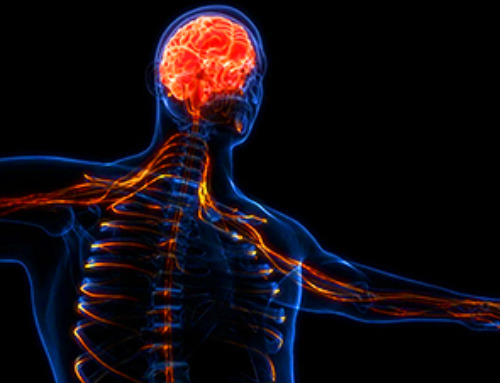A new study led by researchers from University College London (UCL) and the University of Innsbruck reveals that individuals who use e-cigarettes, despite having a limited history of smoking, undergo similar changes in DNA within certain cells of the cheek, comparable to those observed in smokers.
This study is an incremental step in helping researchers build a deeper understanding of the long-term effects of e-cigarettes on health. Although it does not show that e-cigarettes cause cancer, studies with long-term follow-up are important to assess whether e-cigarettes have harmful effects and, if so, what they are.
Understanding Epigenetic Effects
The study, published in Cancer Research, analyzed the epigenetic effects of tobacco and e-cigarettes on DNA methylation in over 3,500 samples, to investigate the impact on cells that are directly exposed to tobacco (e.g. in the mouth) and those that are not directly exposed (e.g. in blood or cervical cells).
The epigenome refers to an extra layer of information that is superimposed on our genetic material – the DNA. While DNA can be compared to the 'hardware' of a computer, epigenetics are comparable to the computer's 'software' and define how, where, and when the programs used by the computer are run.
Epigenomes change throughout our lives and can be affected by a variety of genetic or nongenetic factors – including aging, our lifestyles, exposure to hormones, chemicals, and environmental factors, and even stress and psychological trauma. One commonly studied type of epigenetic modification is called DNA methylation.
The researchers found that epithelial cells (cells that typically line organs and are often the cells of origin for cancer) in the mouth showed substantial epigenomic changes in smokers. Importantly, these changes are further elevated in lung cancers or pre-cancers (abnormal cells or tissue that have the potential to develop into cancer), when compared to the normal lung tissue, supporting the idea that the epigenetic changes associated with smoking allow cells to grow more quickly.
The publication also includes new data showing that similar epigenomic changes were likewise observed in the cells of e-cigarette users who had only ever smoked less than 100 tobacco cigarettes in their lives.
Long-term Implications and Further Research
First author, Dr. Chiara Herzog (UCL EGA Institute for Women's Health and University of Innsbruck), said: "This is the first study to investigate the impact of smoking and vaping on different kinds of cells – rather than just blood – and we've also strived to consider the longer-term health implications of using e-cigarettes.
"We cannot say that e-cigarettes cause cancer based on our study, but we do observe e-cigarette users exhibit some similar epigenetic changes in buccal cells as smokers, and these changes are associated with future lung cancer development in smokers. Further studies will be required to investigate whether these features could be used to individually predict cancer in smokers and e-cigarette users.
"While the scientific consensus is that e-cigarettes are safer than smoking tobacco, we cannot assume they are completely safe to use and it is important to explore their potential long-term risks and links to cancer.
"We hope this study may help form part of a wider discussion into e-cigarette usage – especially in people who have never previously smoked tobacco."
Through their computational analysis of the samples, the researchers also found that some smoking-related epigenetic changes remain more stable than others after giving up smoking, including smoking-related epigenetic changes in cervical samples – something that has not previously been studied.
Senior author, Professor Martin Widschwendter (UCL EGA Institute for Women's Health and University of Innsbruck), said: "The epigenome allows us, on one side, to look back. It tells us about how our body responded to a previous environmental exposure like smoking. Likewise exploring the epigenome may also enable us to predict future health and disease. Changes that are observed in lung cancer tissue can also be measured in cheek cells from smokers who have not (yet) developed a cancer. Importantly, our research points to the fact that e-cigarette users exhibit the same changes, and these devices might not be as harmless as originally thought. Long-term studies of e-cigarettes are needed. We are grateful for the support the European Commission has provided to obtain these data."
The Global Health Context
Tobacco is well known as a modifiable contributor to adverse health outcomes, and it has been estimated to have caused 7.69 million deaths globally in 2019, with numbers expected to increase in the future. The NHS says e-cigarettes are substantially safer than smoking tobacco and smokers are recommended to switch to vaping to improve their health.
The researchers involved in the latest study now hope to further investigate how epigenetic changes related to smoking in cheek swabs could be used for identifying individuals at highest risk of developing cancer and assessing the long-term health risks of e-cigarettes.
Dr. Ian Walker, Cancer Research UK's executive director of policy, said: "This study contributes to our understanding of e-cigarettes, but it does not show that e-cigarettes cause cancer. Decades of research have proven the link between smoking and cancer, and studies have so far shown that e-cigarettes are far less harmful than smoking and can help people quit. This paper does however highlight that e-cigarettes are not risk-free, and so we need additional studies to uncover their potential longer-term impacts on human health.
"Smoking tobacco causes 150 cases of cancer every single day in the UK, which is why we look forward to seeing the Government's age of sale legislation being presented in parliament. Nothing would have a bigger impact on reducing the number of preventable deaths in the UK than ending smoking, and this policy will take us one step closer to a smoke-free future."
Reference: "Cigarette smoking and e-cigarette use induce shared DNA methylation changes linked to carcinogenesis" by Chiara Herzog, Allison Jones, Iona Evans, Janhavi R. Raut, Michal Zikan, David Cibula, Andrew Wong, Hermann Brenner, Rebecca C. Richmond and Martin Widschwendter, 19 March 2024, Cancer Research.
DOI: 10.1158/0008-5472.CAN-23-2957
This work was supported by funding from the European Union's Horizon 2020 Research and Innovation program, The Eve Appeal, and Cancer Research UK.
News
This Viral RNA Structure Could Lead to a Universal Antiviral Drug
Researchers identify a shared RNA-protein interaction that could lead to broad-spectrum antiviral treatments for enteroviruses. A new study from the University of Maryland, Baltimore County (UMBC), published in Nature Communications, explains how enteroviruses begin reproducing [...]
New study suggests a way to rejuvenate the immune system
Stimulating the liver to produce some of the signals of the thymus can reverse age-related declines in T-cell populations and enhance response to vaccination. As people age, their immune system function declines. T cell [...]
Nerve Damage Can Disrupt Immunity Across the Entire Body
A single nerve injury can quietly reshape the immune system across the entire body. Preclinical research from McGill University suggests that nerve injuries may lead to long-lasting changes in the immune system, and these [...]
Fake Science Is Growing Faster Than Legitimate Research, New Study Warns
New research reveals organized networks linking paper mills, intermediaries, and compromised academic journals Organized scientific fraud is becoming increasingly common, ranging from fabricated research to the buying and selling of authorship and citations, according [...]
Scientists Unlock a New Way to Hear the Brain’s Hidden Language
Scientists can finally hear the brain’s quietest messages—unlocking the hidden code behind how neurons think, decide, and remember. Scientists have created a new protein that can capture the incoming chemical signals received by brain [...]
Does being infected or vaccinated first influence COVID-19 immunity?
A new study analyzing the immune response to COVID-19 in a Catalan cohort of health workers sheds light on an important question: does it matter whether a person was first infected or first vaccinated? [...]
We May Never Know if AI Is Conscious, Says Cambridge Philosopher
As claims about conscious AI grow louder, a Cambridge philosopher argues that we lack the evidence to know whether machines can truly be conscious, let alone morally significant. A philosopher at the University of [...]
AI Helped Scientists Stop a Virus With One Tiny Change
Using AI, researchers identified one tiny molecular interaction that viruses need to infect cells. Disrupting it stopped the virus before infection could begin. Washington State University scientists have uncovered a method to interfere with a key [...]
Deadly Hospital Fungus May Finally Have a Weakness
A deadly, drug-resistant hospital fungus may finally have a weakness—and scientists think they’ve found it. Researchers have identified a genetic process that could open the door to new treatments for a dangerous fungal infection [...]
Fever-Proof Bird Flu Variant Could Fuel the Next Pandemic
Bird flu viruses present a significant risk to humans because they can continue replicating at temperatures higher than a typical fever. Fever is one of the body’s main tools for slowing or stopping viral [...]
What could the future of nanoscience look like?
Society has a lot to thank for nanoscience. From improved health monitoring to reducing the size of electronics, scientists’ ability to delve deeper and better understand chemistry at the nanoscale has opened up numerous [...]
Scientists Melt Cancer’s Hidden “Power Hubs” and Stop Tumor Growth
Researchers discovered that in a rare kidney cancer, RNA builds droplet-like hubs that act as growth control centers inside tumor cells. By engineering a molecular switch to dissolve these hubs, they were able to halt cancer [...]
Platelet-inspired nanoparticles could improve treatment of inflammatory diseases
Scientists have developed platelet-inspired nanoparticles that deliver anti-inflammatory drugs directly to brain-computer interface implants, doubling their effectiveness. Scientists have found a way to improve the performance of brain-computer interface (BCI) electrodes by delivering anti-inflammatory drugs directly [...]
After 150 years, a new chapter in cancer therapy is finally beginning
For decades, researchers have been looking for ways to destroy cancer cells in a targeted manner without further weakening the body. But for many patients whose immune system is severely impaired by chemotherapy or radiation, [...]
Older chemical libraries show promise for fighting resistant strains of COVID-19 virus
SARS‑CoV‑2, the virus that causes COVID-19, continues to mutate, with some newer strains becoming less responsive to current antiviral treatments like Paxlovid. Now, University of California San Diego scientists and an international team of [...]
Lower doses of immunotherapy for skin cancer give better results, study suggests
According to a new study, lower doses of approved immunotherapy for malignant melanoma can give better results against tumors, while reducing side effects. This is reported by researchers at Karolinska Institutet in the Journal of the National [...]





















